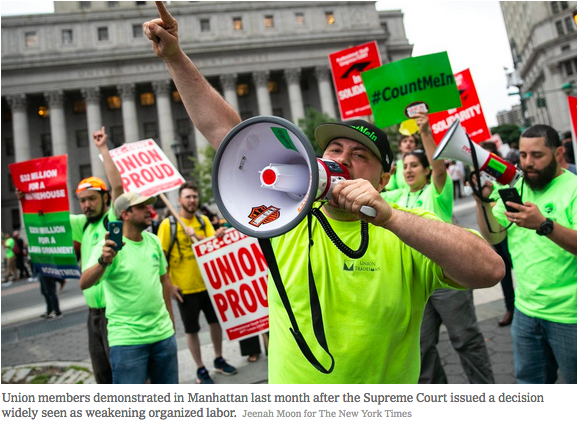New evidence shows that unions played a major role in reducing income inequality in the United States in the decades when organized labor was strong.
But it also demonstrates that the decline in union power since the 1960s — which may be exacerbated as a result of a recent Supreme Court decision — has contributed to the widening gap between rich and poor.
The new insights come from a working paper, “Unions and Inequality Over the Twentieth Century: New Evidence from Survey Data,” by four economists: Henry Farber, Daniel Herbst and Ilyana Kuziemko of Princeton, and Suresh Naidu of Columbia. They establish that unions have constrained income inequality far beyond their own membership ranks.
While the scholars can’t pinpoint the precise mechanism at work, they speculate that unions have indirectly increased pay at firms nervous that their own employees might organize. Unions have also lobbied for higher minimum wages and pushed to hold down executive salaries. They have also advocated for broader access to health care, countering a key channel through which income inequality can harm all of society.




